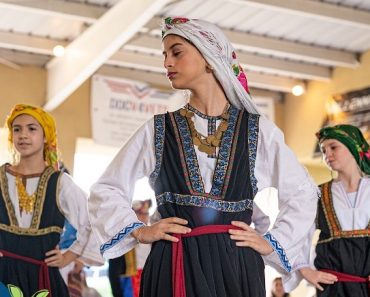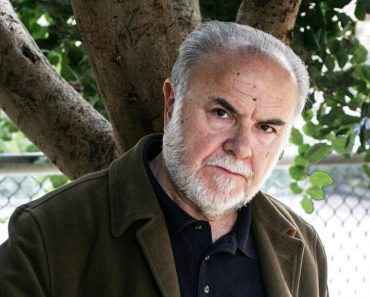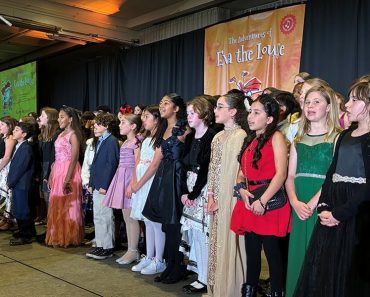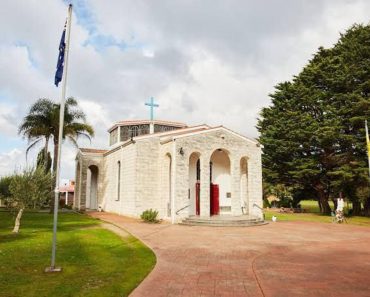As generations of the Greek diaspora succeed one another, the historical memory carried by those who emigrated to Australia during the 1940s, ’50s, ’60s, and even the ’70s is gradually fading.
These individuals, who arrived in their thousands on Australian shores, played a pivotal role in solidifying and expanding the presence of Hellenism in the Antipodes. Together, they effectively “built” a second Greece, which flourished across all sectors of society.
How could this invaluable repository of memory be preserved before being swept away by the relentless march of time?
By documenting the personal stories of our elderly compatriots. This is precisely the mission of the innovative project “Our People Their Stories”, a historical memory “ark” launched just a few weeks ago.

This forward-thinking initiative is particularly noteworthy, not only for its content but also because it originates from the Greek Orthodox Archdiocese of Australia. While the Church is well-known for its pastoral, charitable, educational, and cultural endeavours, this particular project stands apart. It integrates cutting-edge technology with the art of cinematography to preserve the living history of the Greek-Australian diaspora.
At its core, “Our People Their Stories” captures the personal narratives of first- and second-generation migrants through audiovisual media. These accounts are then curated into a “living” museum, which is freely accessible on the project’s website: www.opts.org.au.
Visitors can explore a treasure trove of oral histories presented as Video Stories and Podcasts, all of which are available bilingually in Greek and English.

Moreover, the project showcases rare photographic material, drawn from the personal archives of the participants and the extensive collections of the Archdiocese. This digital archive is constantly enriched with new audiovisual and photographic contributions, ensuring that it grows as a dynamic and evolving resource.
The website for “Our People Their Stories” was officially launched on 15 October by His All-Holiness Ecumenical Patriarch Bartholomew, during a modest ceremony. The first stories have already been uploaded, with many more to follow as the archive continues to expand.
“The remembrance of the past is not a matter of mere museum preservation but a precious legacy for the future. Just as tall, thriving, and robust oaks require deep roots,” remarked the Patriarch, clearly delighted with this initiative by the Church in Australia. He extended his congratulations to His Eminence Archbishop Makarios of Australia, highlighting that the project reflects the Archbishop’s profound understanding of and commitment to the Church’s role in preserving the heritage, cultural wealth, and traditions of the Greek Orthodox diaspora.

His All-Holiness also praised the project’s contributors for bringing the initiative to fruition. Archbishop Makarios, in turn, expressed gratitude to the sponsors, supporters, and Greece’s Minister of Culture, Dr Lina Mendoni, who placed the project under the Ministry’s auspices. He also took the opportunity to pay tribute to the Greek migrants who, in challenging times, dared to navigate “uncharted waters”. He stressed that the ever-expanding presence of Hellenism in the fifth continent owes its success not to isolated efforts, but to collective struggles and determination.
Exploring “Our People Their Stories” offers a captivating glimpse into the experiences of Greek migrants. Some narratives evoke profound emotions with tales of hardship, while others inspire with their accounts of perseverance and success in a new homeland. At the same time, the project vividly brings to life significant aspects of community life during the second half of the 20th century, enabling older generations to reminisce and younger ones to learn.

Among the stories featured so far on the website here are some examples of testimonies from our compatriots in Melbourne and Victoria:
– Anna Pothitou, reflecting on life before and after emigrating to Australia, says: “There were no jobs back in the homeland. And even when you did work, you weren’t paid. My husband and I were amazed that, after working our first week here, we received our wages in hand.”
– Similarly, Dionysia Mousoura recalls: “There were plenty of jobs in factories. My husband started working at Ford the very next day.”
– However, she also paints a stark picture of the housing challenges faced by immigrants: “We lived in three different houses—renting just a room each time—and we were evicted because either my baby cried at night, as my daughter was two and a half years old, or my son wanted to watch TV like the children of the landlord. Tenants were not allowed to enter the living room; it was only for the landlords.”
– Life was difficult from every perspective for immigrant families, especially for mothers balancing work with childcare. Konstantina Skantzou recounts never holding her children while feeding them because she was working from home on her sewing machine. “I would place my baby in the cot, prop a pillow next to it, put the bottle in its mouth, and that’s how I raised my children. We had no one to help us,” she recalls.
– Despite these struggles, the Greek community fostered a strong sense of unity, sharing their sorrows and joys, and never relinquishing their homeland. As George Passakos recounts: “At that time, people were much more connected. There were associations; they organised events and dances. People visited each other often. In our area, there were many Greeks. The church of St Eustathius was packed.”
– Likewise, Thomas Papadopoulos reflects: “People were thirsty for music, for Greek songs”, mentioning that “The entertainment venues were the clubs. They would host 500 or 600 people.”
– The social life of the diaspora is further illustrated by Panagiotis Giannoudis, who highlights the significance of Greek cinemas in the 1950s and 1960s: “The cinemas that regularly screened Greek films numbered more than 35. They played a major role in bringing many couples together.”
– Meanwhile, Angela Vourdami describes how the spiritual and educational needs of migrant families shaped their choices: “We stayed there (in Swan Hill) for four and a half years, and we did well there, but then we wanted a church, we wanted a Greek school for our children. So, we decided to come to Geelong, and we’ve been here for 52 years.”

Thanks to a collaboration between “Our People Their Stories” and ERT (the Hellenic Broadcasting Corporation), these personal narratives of our compatriots will also be broadcast on public television.
As this “ark” of historical memory continues its journey, more personal accounts are being recorded across Australia, ensuring that the “living” museum of our diaspora is constantly curated and enriched with new invaluable additions. Participation is free of charge, and the recording project is taking place throughout all of Australia.
Any individuals who are interested to share their story, or know of someone whose experience is worthy of forever engraving unto our collective memory, can register by calling (02) 9690 6100, emailing contact@opts.org.au, or completing the relevant form on the “Our People Their Stories” website.
*Markellos Petropoulos, is the Director of the Greek Orthodox Archdiocese of Australia Press Office.
Neos Kosmos is a media sponsor of the initiative.






